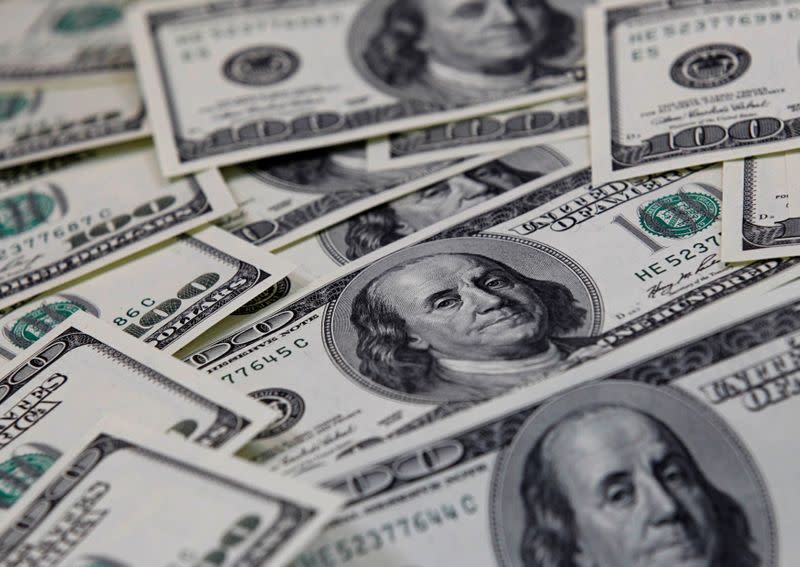Dollar retreats as riskier currencies rebound

By Saqib Iqbal Ahmed
NEW YORK (Reuters) - The U.S. dollar fell across the board as riskier currencies found a firmer footing on Tuesday, a day after worries over vaccine rollouts and the outlook for U.S. fiscal stimulus boosted demand for safe havens.
Mounting coronavirus cases and caution ahead of the U.S. Federal Reserve's policy meeting this week has dulled appetite for risk, lending support to the dollar against a basket of currencies in recent sessions, but investors were once again nibbling at riskier currencies on Tuesday.
The U.S. Dollar Currency Index was 0.19% lower at 90.173. The index rose as high as 90.614, its strongest since Jan. 20, earlier in the session.
The dollar appeared to be taking its cue from overall risk sentiment in the market, said Michael Brown, senior analyst at payments firm Caxton, in London.
Data on Tuesday showed U.S. consumer confidence rose moderately in January amid lingering concerns about the COVID-19 pandemic.
"There is also probably a lack of appetite to be buying the dollar before what's likely to be another dovish Federal Open Market Committee (FOMC) meeting tomorrow," Brown said.
Few if any changes are expected to the Fed's policy statement on Wednesday after its two-day meeting and no new economic forecasts are scheduled to be released.
Despite the dollar's recent rebound from multi-year lows, speculators in the currency market remain extremely bearish on the U.S. currency.
(GRAPHIC: Down on the dollar - https://fingfx.thomsonreuters.com/gfx/mkt/rlgpdgadzvo/Pasted%20image%201611673686398.png)
Traders are also keenly watching progress on the U.S. stimulus front after U.S. Senate Majority Leader Chuck Schumer said Democrats may try to pass much of President Joe Biden's $1.9 trillion spending package with a majority vote, but it is not clear if they have the numbers to override Republican objections.
The euro was higher on the day, but gains were muted amid early signals that the economy may not rebound as strongly this year as predicted. Germany's Ifo business climate indicator undershot expectations on Monday and an economic surprise index in Europe is near six-week lows.
On Tuesday, the Australian dollar - seen as a liquid proxy for risk - was 0.48% higher against the dollar; the New Zealand dollar was up 0.65%.
Elsewhere, emerging-market currencies saw an easing of recent selling pressure with the Brazilian real rising more than 1%.
Sterling pulled away from a one-week low against the dollar and also gained ground against the euro as rebounding risk appetite in broader asset markets weakened the U.S. currency.
(Reporting by Saqib Iqbal Ahmed; Editing by Bernadette Baum)

 Yahoo Finance
Yahoo Finance 